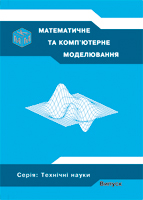Людиноподібні діалогові агенти
DOI:
https://doi.org/10.32626/2308-5916.2014-11.163-186Ключові слова:
natural dialogue, erotetic dialogue, dialogue transaction, declarative knowledge, Language of Ternary Description.Анотація
The paper deals with an investigation and modeling of the inner mechanisms of human-human dialogue, with the final goal to construct an artificial humanlike dialogue agent. An ontological basis of human dialogue interaction, underlying follow-up reasoning, is obtained on the basis of analysis of human-human dialogues and illustrated by one of Plato’s dialogue, Protagoras. The paper proposes two models directed to explain some inner mechanisms of human-human dialogue. Both models are synthesized for the case of one type of human-human dialogues, called erotetic dialogue. The model of the structure of dialogue transaction is created in the context of a declarative knowledge representation, based on Language of Ternary Description. The model for the cognitive cycle of dialogue interaction is in fact a development of Neisser’s cyclical model of perception.
Посилання
Hintikka J. Questions about questions / J. Hintikka ; eds. M. K. Munitz, P. K. Unger // Semantics and Philosophy. — New York : New York University Press, 1974. — P. 103–158.
Wisniewski A. The Posing of Questions: Logical Foundations of Erotetic Infe-rence / A. Wisniewski. – Kluwer : Academic Publishers, 1995.
Uyemov A. The Ternary Description Language as a Formalism for the Para-metric General Systems Theory / A. Uyemov // Int. J. of General Systems. — 1999. — Vol. 28 (4-5). — Part I. — P. 351–366.
Uyemov A. The Ternary Description Language as a Formalism for the Para-metric General Systems Theory / A. Uyemov // Int. J. of General Systems. — 1999. — Vol. 31 (2). — Part II. — P. 131–155.
Uyemov A. The Ternary Description Language as a Formalism for the Para-metric General Systems Theory / A. Uyemov // Int. J. of General Systems. — 2003. — Vol. 32 (6). — Part III. — P. 583–623.
Turing A. Computing machinery and intelligence / A. Turing. — Mind, 1950. — № 59. — P. 433–460.
Russel S. Artificial Intelligence: A Modern Approach, second edition / S. Rus-sel, P. Norvig. — New Jersey : Pearson Education, Inc., Upper Saddle River, 2003.
Brainerd C. Piaget’s Theory of Intelligence / C. Brainerd. — New Jersey : Prentice-Hall, Inc., 1978.
Neisser U. Cognition and Reality / U. Neisser. — San Francisco : W.H. Free-man and Company, 1976.
Belnap N. B. The Logic of Questions and Answers / N. B. Belnap, T. Steel. — New Haven ; London : Yale University Press, 1976.
Hintikka J. Socratic Epistemology: Explorations of Knowledge Seeking by Questions / J. Hintikka. — Cambridge University Press, 2007.
Plato, Complete works / Edited by J.M. Cooper, Associate Editor D.S. Hut-chinson. — Indianapolis : Hackett Publishing Co., 1997.
Schaffer J. Knowing the answer / J. Schaffer // Philosophy and Phenomenolog-ical Research. — 2007. — Vol. LXXV, № 2. — P. 383–403.
Wenger E. Artificial Intelligence and Tutoring Systems / E. Wenger. — Los Altos, California : Morgan Kaufman, 1987.
Chemyr I. A. SmartText: Using Agents Supporting Personalized Reading Comprehension / I. A. Chemyr, M. A. Horney, L. Anderson-Inman // Personal Technologies. — 1998. — Vol.2, № 3. — P. 152–161.
Chimir I. Modeling of a Procedural Knowledge by a Dialogue Knowledge Base / I. Chimir, W. Abu-Dawwas // The International Arab Journal of Information Technology. — 2004. — Vol.1, № 1. — P. 128–134.
Kahneman D. Attention and Effort / D. Kahneman. — New Jersey : Prentice-Hall, Inc., Englewood Cliffs, 1973.
##submission.downloads##
Опубліковано
Номер
Розділ
Ліцензія
Authors who publish with this journal agree to the following terms:- Authors retain copyright and grant the journal right of first publication with the work simultaneously licensed under a Creative Commons Attribution License that allows others to share the work with an acknowledgement of the work's authorship and initial publication in this journal.
- Authors are able to enter into separate, additional contractual arrangements for the non-exclusive distribution of the journal's published version of the work (e.g., post it to an institutional repository or publish it in a book), with an acknowledgement of its initial publication in this journal.
- Authors are permitted and encouraged to post their work online (e.g., in institutional repositories or on their website) prior to and during the submission process, as it can lead to productive exchanges, as well as earlier and greater citation of published work (See The Effect of Open Access).

